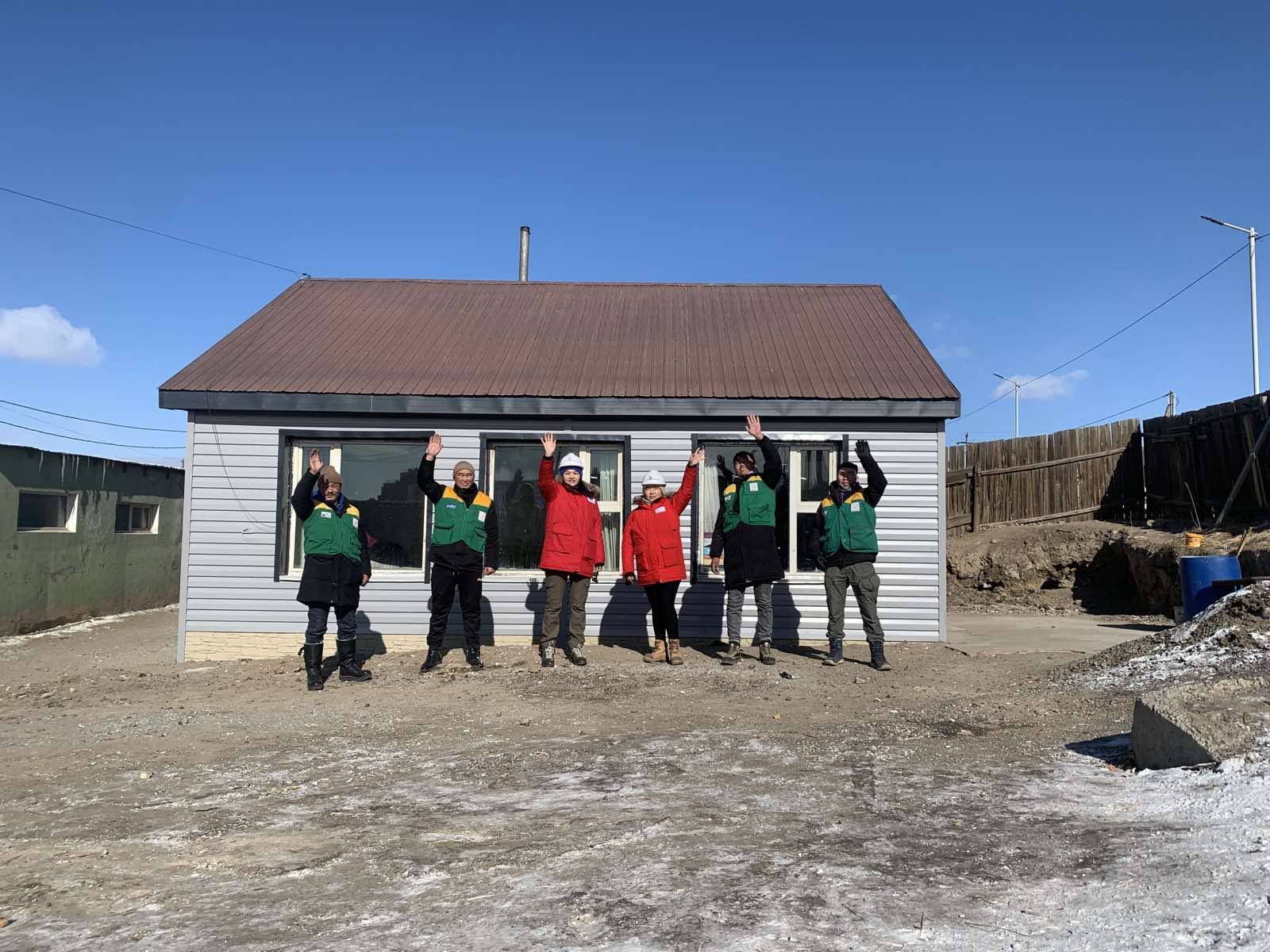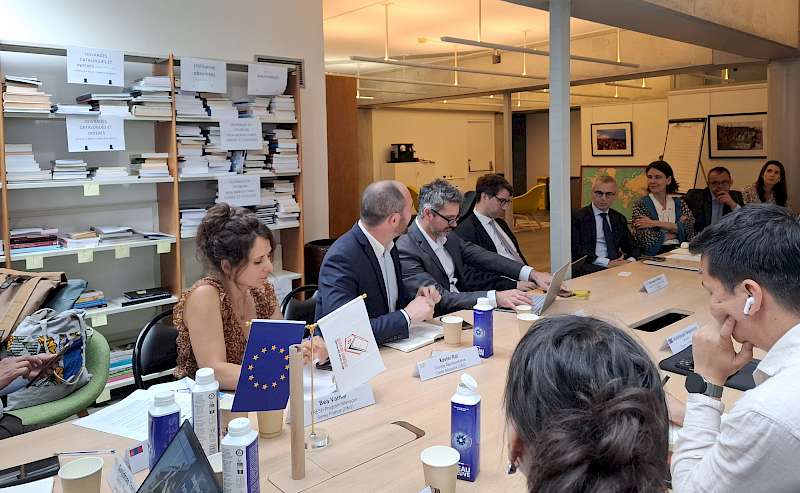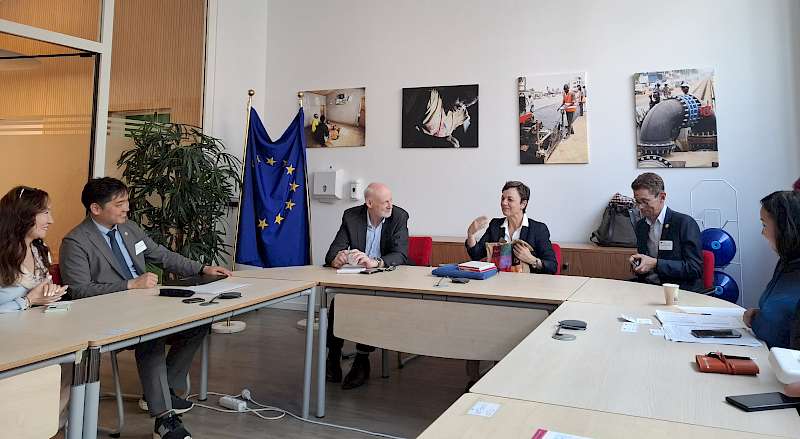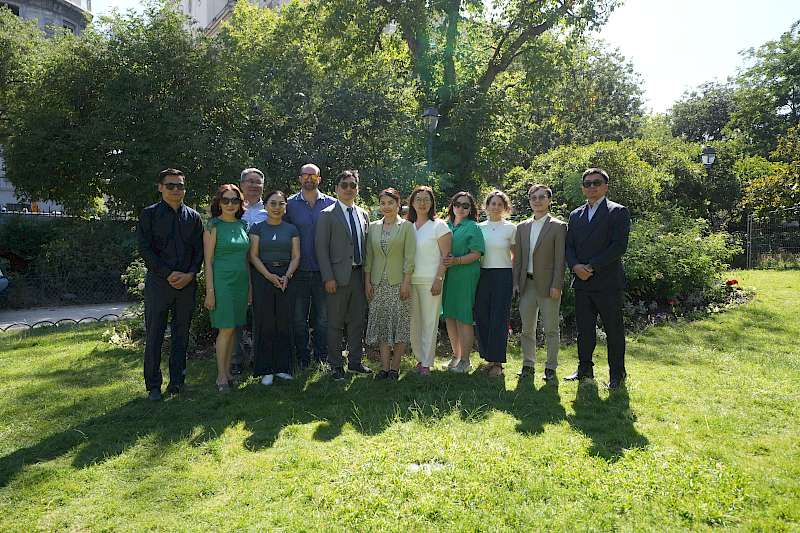
Mongolia’s urban centers, particularly its ger districts, face severe energy inefficiencies and air pollution during the long winters. To address these issues, the Switch-off Air Pollution in Mongolia's Cities (SOAP II) project, funded by the European Union’s SWITCH-Asia Programme, and the FRESH Project, supported by the French Development Agency (AFD), are working to improve energy efficiency in detached houses.
As part of these efforts, Geres International NGO organized a study tour to France and Belgium from June 21-29, 2025. The delegation included Mongolian policymakers, financial institutions, and housing-sector stakeholders, who explored Europe’s best practices in retrofitting, financing, and sustainable housing policies.
The tour began in Paris, where participants examined urban strategies linking energy efficiency with affordable housing. In Brussels, attention shifted to large-scale housing retrofits and financing mechanisms, with site visits to social housing projects and meetings at European institutions.
Key French and Belgian institutions showcased different but complementary approaches:
- ANAH (French National Housing Agency): Manages €3.7 billion in subsidies for retrofits targeting low- and middle-income households.
- SOLIHA: Provides technical, financial, and administrative support for vulnerable groups, including the elderly and people with disabilities.
- Agence Parisienne du Climat (APC): Operates as a “one-stop shop,” offering technical and financial guidance, supported by its digital platform CoachCopro.com.
- SLRB and Comensia (Belgium): Demonstrated how coordinated financing and long-term planning can modernize social housing while preserving cultural heritage.
An Ecosystemic Approach
European experiences underline that successful retrofitting goes beyond subsidies. It requires an ecosystem where policies, financing, skilled labor, and innovation reinforce one another. For example, France’s Energiesprong model uses prefabricated insulated walls, integrated solar roofs, and performance guarantees to deliver near net-zero homes. Although initial costs are high, standardization and scale drive long-term affordability. Experts from Climact, a European consulting firm, stressed that subsidies must be paired with behavioral change, training, and innovation to create sustainable housing transitions.
Financing and Incentives: Making Retrofits Accessible
A recurring theme throughout the study tour was the need for inclusive financial mechanisms that enable low- and middle-income households to retrofit their homes. Equally important are balanced incentives that support both supply-side actors (builders, engineers, energy service companies) and demand-side actors (households). Such models ensure that the retrofit market functions sustainably, delivering both environmental and social benefits.
Opportunities for Mongolia
During the exchange, the Mongolian delegation highlighted urgent domestic challenges: inefficient housing in ger districts, financial constraints for households, and hazardous winter air pollution. Discussions with the European Investment Bank (EIB), the European Commission (DG INTPA), and AFD revealed potential avenues for collaboration. The European Commission also pointed to upcoming funding opportunities that Mongolia could leverage to expand housing retrofits and sustainable urban development.
The study tour concluded with several lessons that Mongolia can adapt to its own context:
- Ecosystemic Approach: Strengthen enforceable housing policies and integrate them into long-term sustainability goals.
- Inclusive Financial Mechanisms: Create tools tailored to low- and middle-income households to reduce financial barriers.
- Balanced Incentives: Ensure both builders and households are supported to foster a functioning retrofit market.
Europe’s experience shows that effective housing retrofitting is not just about subsidies, it requires a comprehensive framework of policies, financing, skills, and innovation.
For Mongolia, adopting these models could mean cleaner air, reduced greenhouse gas emissions, and warmer, more energy-efficient homes. By building strong partnerships with European and international institutions, Mongolia has the opportunity to accelerate its energy transition and significantly improve quality of life for its citizens.





